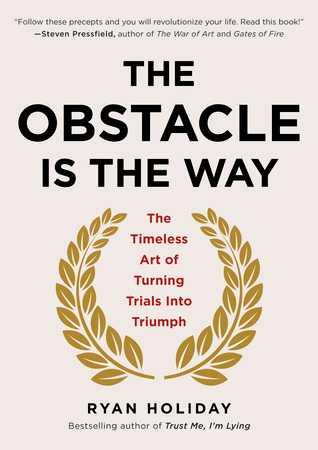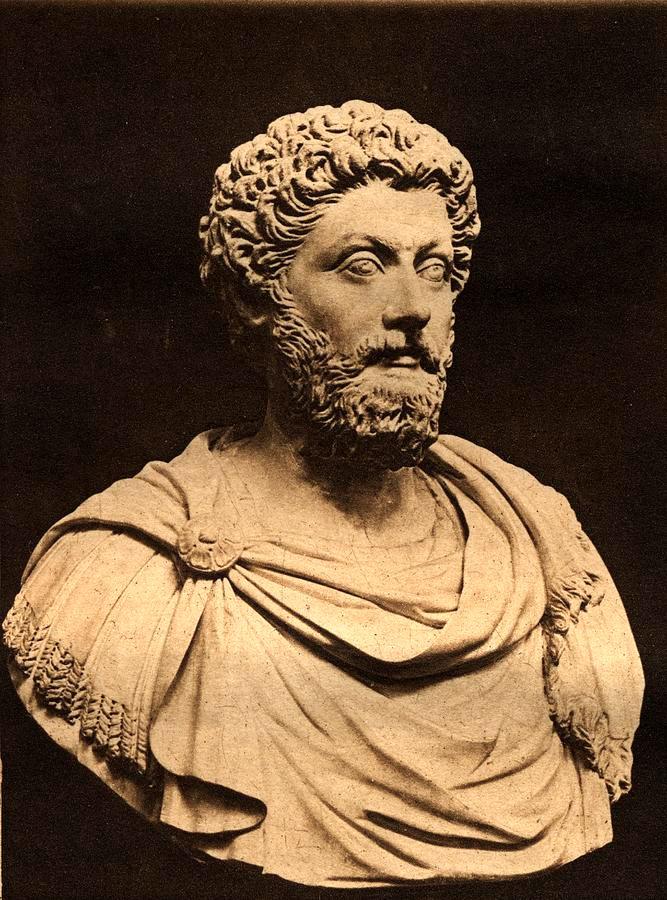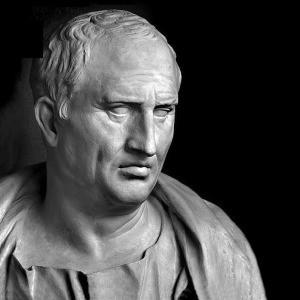Alexis T.'s Key Ideas from The Obstacle is the Way
by Ryan Holiday
Ideas, facts & insights covering these topics:
18 ideas
·4.02K reads
13
Explore the World's Best Ideas
Join today and uncover 100+ curated journeys from 50+ topics. Unlock access to our mobile app with extensive features.
Stoicism: Overcoming Obstacles
Through the ages, people have relied on the philosophy of Stoicism to conquer their difficulties. In addition to ancient Greeks and Romans, proponents included Frederick the Great, Michel de Montaigne, Thomas Jefferson, George Washington, Adam Smith and Theodore Roosevelt. Every year, former US president Bill Clinton studies the writing of Roman emperor Marcus Aurelius, a well-known Stoic philosopher.
Stoicism – an operating manual for life – is a pragmatic philosophy that helps people overcome their difficulties.
80
439 reads
The Key Takeaways
- Stoicism rests on three primary disciplines: “perception, action and the will.”
- Perception is the way you see the world. Viewing it realistically or with a bias can help or hinder you.
- The right action is always directed, deliberate, bold and persistent.
- The world can break your body, but thanks to willpower, it can never break your spirit and mind. You control your will.
- Obstacles that stand in the way of progress can actually promote progress.
- People improve by facing and meeting challenges head-on.
- The obstacles you overcome provide benefits you could not otherwise realize.
88
354 reads
Parallels With Zen Philosophy
An ancient Zen parable features an almost identical line of thinking, stating: The obstacle in the path becomes the path…Within every obstacle is an opportunity to improve our condition.
85
339 reads
The Wisdom Of Aurelius
Stoicism and Marcus Aurelius’s wisdom motivated men and women throughout history, helping to spark the Renaissance, the Enlightenment, the Industrial Revolution, the US civil rights movement and Silicon Valley’s amazing high-technology advances.
Stoicism addresses real-life issues that confront everyone: “Are you worthy?” “Can you get past the things that inevitably fall in your way?” “Will you stand up and show…what you’re made of?”
81
247 reads
Move Towards The Obstacle
Obstacles can provide benefits. First, you must move beyond typical responses to trouble, including “fear, frustration, confusion, helplessness, depression” and “anger.”
Marcus Aurelius’s courage and self-knowledge enabled him to transform trouble and tragedy into triumph. Achieve similar results by adopting the vital Stoic lesson: “The obstacle is the way.”
Marcus defined the methods to overcome obstacles: “Objective judgment, now at this very moment. Unselfish action, now at this very moment. Willing acceptance – now at this very moment – of all external events. That’s all you need.”
82
233 reads
The Discipline of Perception
- How you see the world provides meaning to the events of your life. Don’t assign “good or bad” labels to events.
- Put aside your fears and prejudices. See things for what they are. See the truth, not a biased interpretation of it.
- How you think about and react to obstacles while maintaining your composure defines you.
83
230 reads
Bad companies are destroyed by crisis. Good companies survive them. Great companies are improved by them.
ANDY GROVE - FORMER CEO OF INTEL
80
249 reads
Story: Altering Your Perspective
The American industrialist John D. Rockefeller once worked for just 50 cents a day as a bookkeeper in Cleveland, Ohio. As an investor, he rode out major national financial crises in 1857, 1873, 1907 and 1920. Where others saw catastrophe and chaos, the objective, unemotional Rockefeller saw valuable lessons and opportunities.
So much so, that by 1877, his perception and his nerve helped him corner “90% of the oil market.”
79
182 reads
Story: Recognize Your Power
During the 1960s, Rubin “Hurricane” Carter was a leading middleweight title contender. Carter was unjustly convicted in a triple-homicide case. In jail, he never ceded power to the warden or guards. He maintained his independence and his identity. Carter – and not the authorities – held control over his mind and spirit. He spent his time in prison working on his legal case.
After 19 years, Carter got his verdict overturned. Once released from prison, he never looked back.
80
184 reads
Story: Steady Your Nerves
During the US Civil War, General Ulysses S. Grant always seemed completely nerveless. Once, a shell exploded near him, and killed a horse right next to him. Unfazed, Grant calmly surveyed the battlefield through his field glasses. He saw that his troops were removing supplies from a steamship when it exploded.
Everyone ducked for cover except Grant, who ran toward the shattered steamboat to help the survivors.
79
164 reads
Story: Control Your Emotions
NASA trained America’s first astronauts to remain cool under pressure and to avoid panic. The agency had the astronauts practice every aspect of their space flight “hundreds of times,” until the routines became commonplace. Comprehensive training eliminated the unfamiliarity of spaceflight.
79
162 reads
Story: Stay Aware And Curious
Tommy John pitched in Major League Baseball for an astonishing 26 seasons. John always asked himself: “Is there a chance?” “Do I have a shot?” “Is there something I can do?” When he was 45 years old, the Yankees cut John. Unfazed, he appeared as a walk-on at the team’s next spring training. He worked hard, made the team and pitched the season opener, a win over Minnesota.
80
145 reads
The Discipline Of Perception: Lessons Learned
Stay objective. When necessary, change the way you interpret what you see. Don’t agonize over the past or worry about the future. Focus your thoughts and actions on the present. Find the good in the bad. Stay bold.
83
173 reads
The Discipline Of Action
When you are deliberate, bold and persistent, you are better prepared to take “right and effective” actions. Use the “creative application” of action to dismantle obstacles.
Set out to develop the “Minimum Viable Product,” as identified by Silicon Valley’s iterative MVP philosophy. Remember the engineering touchstone: “Failure is a feature.” Learn from every failure. Treat your job like the most important work in the world. Stay aware that sometimes a flank attack will work better than a head-on charge.
81
151 reads
The Discipline Of Will
The world can knock you down and break your heart. But if you harness your willpower, no knockdown blow can deter you. Your will – not anyone else’s – puts you firmly in charge of your life and accomplishments. Proper willpower is steady, not blustery.
You connect to your internal power without braggadocio; the best strength of will springs from “humility, resilience and flexibility.”
Postmortems are useful; so are pre-mortems – thinking in advance about “what could go wrong.” Sometimes you must simply acquiesce when things don’t go your way.
79
123 reads
Stoicism: The Operating Manual
Across the centuries, academics in their ivory towers tried to assume ownership of philosophies such as Stoicism and tried to guard it as part of their exclusive domain. As developed by Seneca, Zeno and others, the philosophy of Stoicism was never intended to be isolated as remote, sterile intellectualization.
Those sages first promulgated Stoicism as “an operating system for the difficulties and hardships of life,” and that is how it should remain.
79
122 reads
Don’t let the force of an impression… knock you off your feet; just say to it: Hold on a moment; let me see who you are and what you represent. Let me put you to the test.
EPICTETUS
79
170 reads
IDEAS CURATED BY
"Making money is art and working is art and good business is the best art." ~ Andy Warhol
CURATOR'S NOTE
Media strategist Ryan Holiday explains how contemporary people can utilize some venerable Stoic principles to turn obstacles into advantages.
“
Alexis T.'s ideas are part of this journey:
Learn more about books with this collection
How to delegate tasks efficiently
How to use technology to your advantage
How to optimize your work environment
Related collections
Different Perspectives Curated by Others from The Obstacle is the Way
Curious about different takes? Check out our book page to explore multiple unique summaries written by Deepstash curators:
7 ideas
16 ideas
10 ideas
Discover Key Ideas from Books on Similar Topics
6 ideas
52 ideas
How to Be a Stoic
Massimo Pigliucci
3 ideas
3 Stoic Mantras To Build Your Life On
Daily Stoic
Read & Learn
20x Faster
without
deepstash
with
deepstash
with
deepstash
Personalized microlearning
—
100+ Learning Journeys
—
Access to 200,000+ ideas
—
Access to the mobile app
—
Unlimited idea saving
—
—
Unlimited history
—
—
Unlimited listening to ideas
—
—
Downloading & offline access
—
—
Supercharge your mind with one idea per day
Enter your email and spend 1 minute every day to learn something new.
I agree to receive email updates


















